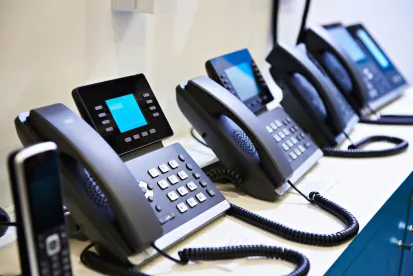At its Open Meeting last week, the FCC approved a Declaratory Ruling that prevents state, local, and Tribal 911 entities from collecting higher 911 fees from VoIP subscribers than what these groups collect from subscribers of traditional telecommunications services. The FCC is promoting fee parity among services that provide end-users with the same 911 calling capability.
The final Ruling is not yet available, but it is not expected to differ much from the draft (available here) that was circulated by the FCC earlier this month.
Background. The FCC’s Ruling stems from a referral from the U.S. District Court for the Northern District of Alabama. The Ruling clarifies section 6(f)(1) of the New and Emerging Technologies 911 Improvement Act of 2008 (NET 911 Act). The NET 911 Act was passed to promote the transition of legacy 911 infrastructure to an IP-enabled emergency network. The Act also extends 911-related rights, protections, and obligations to VoIP providers. Section 6(f)(1) of the Act prohibits charging 911 fees to VoIP service subscribers in excess of fees paid by telecommunication service customers.
Alabama Litigation. Several years ago, four 911 Districts in Alabama sued BellSouth for allegedly underbilling certain 911 charges. The Districts alleged that BellSouth failed to bill and collect all required 911 charges. BellSouth argued that Alabama law conflicts with the NET 911 Act because it effectively resulted in higher 911 charges for VoIP services. The District Court granted BellSouth’s motion for a primary jurisdiction referral to the FCC, and the FCC subsequently issued a Declaratory Ruling on the matter.
Declaratory Ruling. In its ruling, the FCC confirmed that section 6(f)(1) prohibits non-federal governmental entities from imposing 911 fees or charges on VoIP services in any manner that would result in a subscriber to such VoIP services paying a higher total amount of 911 fees or charges than is imposed on a subscriber to traditional telecommunications services with the same 911 calling capacity. The Commission rejected an interpretation of section 6(f)(1) that would prohibit a fee discrepancy in the nominal fee itself, instead deciding that parity in the total amount of the fee is more appropriate considering the Act’s purpose. The Declaratory Ruling does not preempt any state law or regulation but provides guidance to courts on future 911 fee issues.




 />i
/>i

